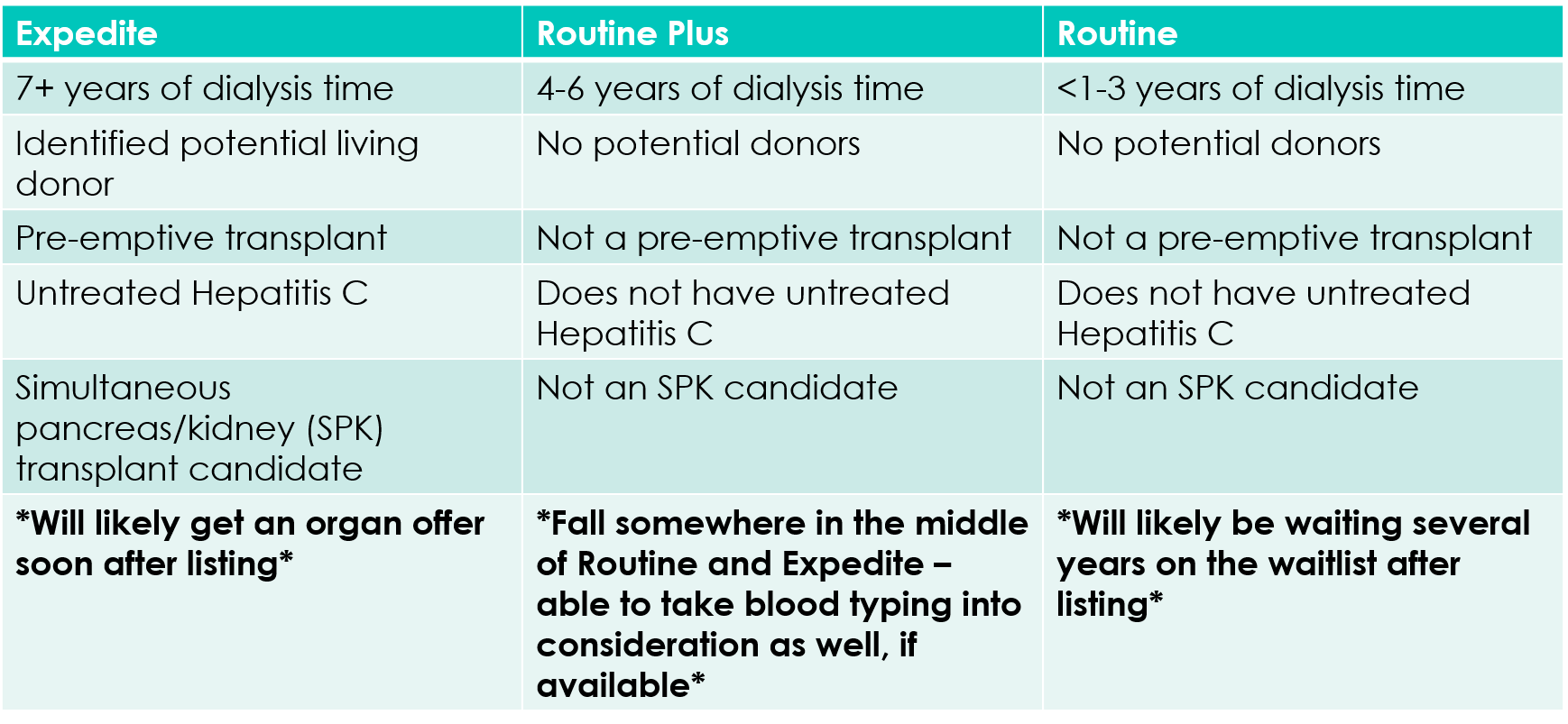A New Triage-based Approach to Managing Transplant Referrals
Division of Kidney & Pancreas Transplantation, UCI Health, Orange, CA
Meeting: 2021 American Transplant Congress
Abstract number: 496
Keywords: Kidney, Kidney transplantation, Outpatients
Topic: Administrative » Quality Assurance Process Improvement & Regulatory Issues
Session Information
Session Name: Quality Assurance Process Improvement & Regulatory Issues
Session Type: Poster Abstract
Session Date & Time: None. Available on demand.
Location: Virtual
*Purpose: To develop and implement a novel triage-based approach to the management of referrals for kidney transplant evaluation
*Methods: The transplant nurse coordinator dedicated to referral intake used the triage-based referral management protocol to separate the incoming referrals into three buckets: expedite, routine plus and routine referrals (refer to Figure 1: Triaging patients for scheduling). Expedited referrals were identified as those patients that would be most likely to receive deceased donor organ offers quickly after being added to the waiting list due to extensive time on dialysis and/or those that had an identified living donor. Routine plus and routine referrals were those patients which had less dialysis time accrued or those that just recently started dialysis and had none of the other identified factors to be an expedited candidate. A large bi-monthly pre-transplant education class that could accommodate up to 40 patients as compared to only 6 previously was implemented. All referral patients were eligible to be scheduled and attend education class as soon as possible. Due to limited clinic space availability, at least one appointment slot in each pre-transplant evaluation clinic was reserved for expedited referral patients. If at any time a referral patient’s circumstances changed such as an identified living donor candidate coming forward, the patient would be re-triaged to an expedite referral.
*Results: Prior to implementation of the new protocol in May 2019, the transplant program had over 350 new patient referrals backlogged along with the regularly incoming referrals. By January 2020, the 350 backlogged referral patients had attended the pre-transplant education class and had either been scheduled for a future appointment, attended their initial evaluation appointment, or had been ruled out by the triage nurse and made not a candidate. Another finding that was not anticipated but welcomed was fewer cancellations and fewer no shows for both the bi-monthly education class and the transplant evaluation appointments. This created further efficiency as scheduled slots for clinic appointments had increased utilization. The nurse coordinator along with administrative and financial coordinators facilitated the transplant program to then begin scheduling all patient’s real time as referrals came in.
*Conclusions: This triage-based approach to managing transplant referrals ensures that clinical operations for transplant programs are streamlined, the triage nurse and intake team can keep up on processing referrals real-time and ultimately this results in appropriate candidates being added more efficiently to the kidney waiting list.
To cite this abstract in AMA style:
Walther HL. A New Triage-based Approach to Managing Transplant Referrals [abstract]. Am J Transplant. 2021; 21 (suppl 3). https://atcmeetingabstracts.com/abstract/a-new-triage-based-approach-to-managing-transplant-referrals/. Accessed February 14, 2026.« Back to 2021 American Transplant Congress

